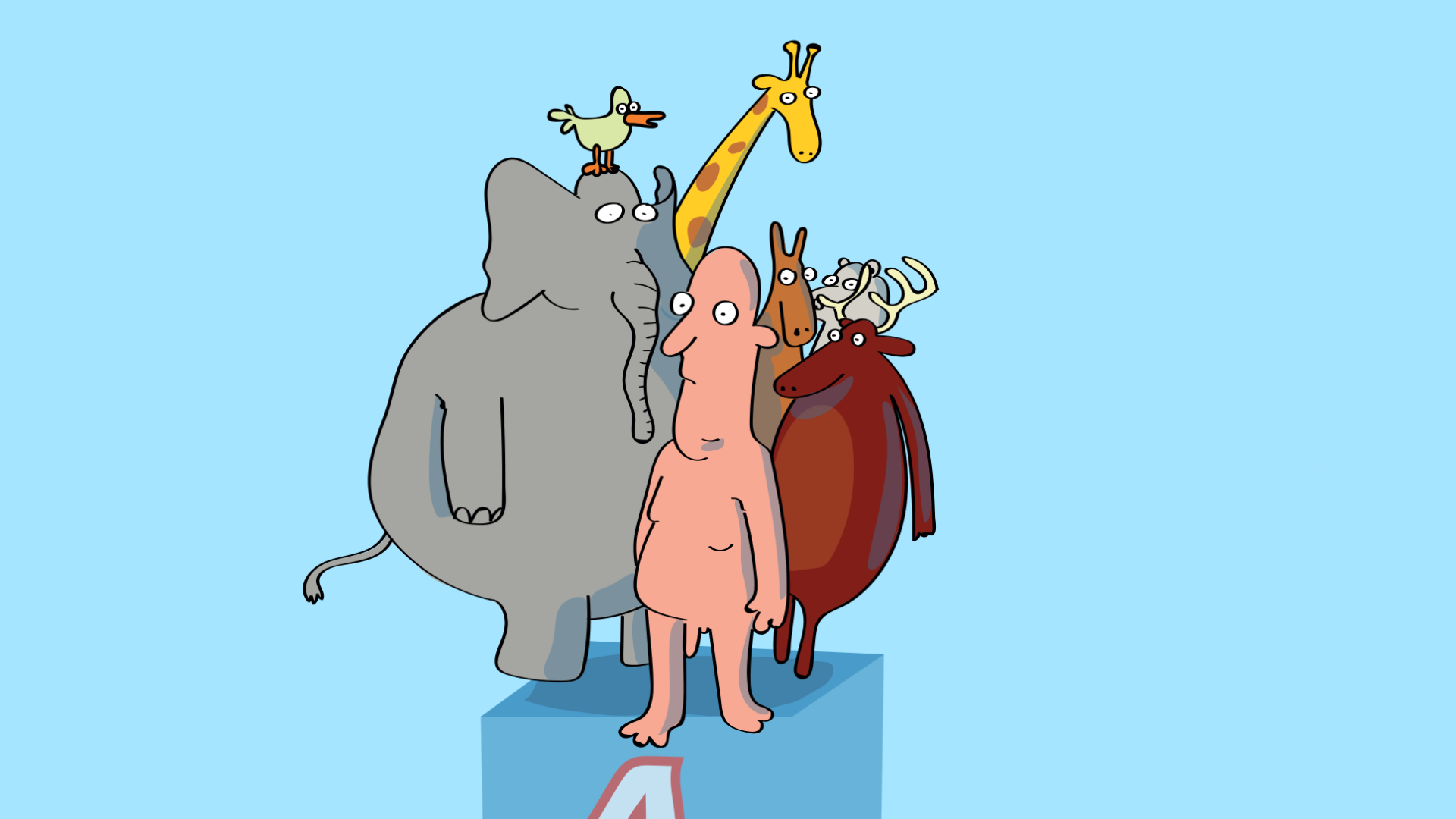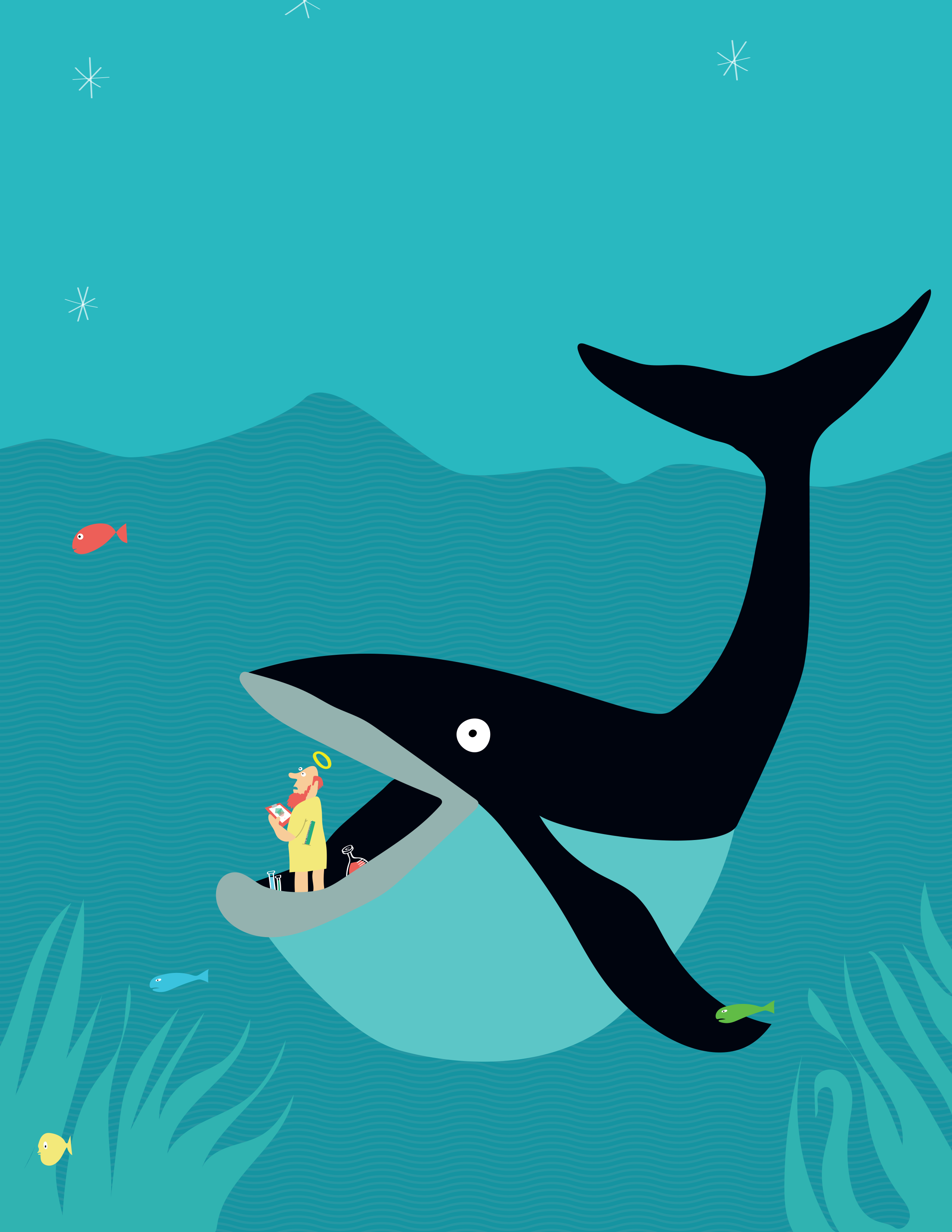The mystery of religious scientists
-
 Illustratie: emde
Illustratie: emde
In their office or lab they study the origins of life on earth and the workings of the human body. Out in the world they pray, go to church, sometimes even work as priests. There are still quite a few of them out there: religious scientists.
Long ago, the church and the university were closely linked, and churches founded their own universities. In 2018, such a combination is much less self-evident, as society – and science – have become largely secularised. As a quantum physicist, can you still believe that the world was created in six days?
‘Genesis is not a scientific story’
Of course not, says Professor of Mathematics Klaas Landsman. ‘A Catholic university is a contradiction in terms. The Catholic Church rests on four pillars: tradition, authority, dogma, and faith in miracles. Each of them conflicts with the idea of science. Universities are supposed to seek the truth, a quest that is blocked by religion.’ The Bible is full of factually inaccurate claims, argues Landsman. ‘Whether about the origins of life on earth, and about its further history, including the origins of Christian faith itself. As a scientist you have to compare two scenarios: either life on earth has divine origins, or it’s a natural process. Everything seems to point to the latter.’
Deep feelings
It’s not that Landsman is not occupied with religion. He possesses dozens of books about Jesus as a historical figure, and he enjoys studying the historicity of religion. Almost every year, his online New Year’s greetings includes a quotation from the Bible. The mathematician has nothing against religious people, he says. What he objects to is people who say that science and religion are compatible. ‘In my experience these people tend to avoid facts and rely on deep feelings which I apparently don’t share.’
Nonsense, says Professor Heino Falcke. The astronomer is not only a scientist, but also a lay minister in Frechen, Germany, where he lives. His daughter is about to graduate as a minister, and his family attends church every Sunday. All of this is perfectly compatible with his job as a scientist, he says. At every important career milestone, he inherits a family-owned Bible, which he then gives place of honour next to a crucifix on the bookshelf.
‘Many critics, but also some fundamentalists, read the Bible as if it were a physics text book – as a single-level manual that contains only technical facts,’ says Falcke. ‘So you probably assume I do so too. But nothing could be less true.’ Take the creation of the earth. ‘I think those six days are primarily a literary choice, one that provides structure to consider deeper questions. Genesis is a story written by priests for shepherds and scientists, but it’s not a scientific story. It is, however, interesting that such an old story should take such a rational view of the world’s origins as a step-by-step process. No Big Bang and Multiverse theory can truly explain our origins. Where does the Big Bang itself come from? What about nature’s laws? You always have to start with a hypothesis. For me, this ‘hypothesis’ is God, who is approachable, and has an idea for this Universe – this last bit is indeed faith.’
Fundamental believers
Falcke recently shared a podium discussion with former Minister and researcher Ronald Plasterk. ‘He focused not so much on the ‘religion’ versus ‘science’ dichotomy, but rather on the importance of having an open attitude to life, as a religious person and as a scientist. Do you find yourself holding on to radical truths? Of course there are still fundamental believers. But if you dare to take a critical look at your religion and at science, you can easily combine the two.’

Mathematician Henk Don also has no trouble combining work and faith. He was raised as a Reformed Protestant and still lives in the Bible Belt. In addition to his assistant professor job, he attends church on a weekly basis and represents the SGP on the municipal council. His office in the Huygens building reveals little: the mathematical formulas on the chalkboard draw most attention, and there are no crucifixes on the walls. Don doesn’t like to push his faith in people’s faces. He believes that faith is a personal matter. Within mathematics he hasn’t run into any themes that would make him feel uncomfortable about his faith.
‘We can’t prove that Jonah really spent time inside the whale’
‘I see that there’s tension between science and religion, but for me the two don’t contradict each other. With complex themes, such as the origins of life on earth, it’s unclear to me where the truth lies. The Bible story sounds improbable, but at the same time, the Big Bang theory also only appeared in the last century. I wouldn’t be at all surprised if people had a completely different perspective on it in a hundred years’ time.’
Don considers Biblical stories such as that of Jonah and the whale to be improbable, but not necessarily untrue. ‘Of course, we can’t prove that Jonah really spent time inside the whale. At the same time, we also can’t prove that he didn’t. I think this falls outside the realm of science.” Is that allowed, then, to doubt one’s faith? Don: “There are many people for whom literal interpretation is beyond all doubt, but I can’t accept such definitive answers.’
Suffering and mortal fear
According to Klaas Landsman there are fundamental aspects in which religion and science really do clash. Take the position of humans within the Universe, he says. ‘Science sees humans as not so very different from animals, and vice versa, mammals and even squids are seen as remarkably similar to people. Both can be social and intelligent, experience emotions, and know suffering and mortal fear. Dutch biologists like Radboud University Honorary Fellow Frans de Waal and Nobel Prize Winner Niko Tinbergen already subscribed to this idea a long time ago. In Christianity, on the contrary, humans have a unique position in the Universe. Humans, the idea goes, are fundamentally different from animals. This is what entitles us, without any objections from Christianity, to slaughter them by the hundreds of millions. Every day.’
Student of Medical Biology Jet Westerink recognises this contradiction. In addition to her studies, she’s also an active member of the Christelijke Nijmegen studentenvereniging de Navigators (NSN), and in this context took part in a roundtable discussion last year on science and religion. ‘Biology has taught me that humans and animals are not genetically different. But if I personally look at a cat and a human, I can’t help but see fundamental differences. The question is of course: would this kind of distinction really be apparent in our DNA? Or did God make humans special in a different way, without adjusting their biological programming?’

Westerink sometimes finds it difficult to express her views on the subject. ‘In the first year, I followed a number of courses on plant and animal evolution. The teacher sometimes joked that there were still ‘people out there who believed the Earth was created by God’, and the entire audience laughed out loud. I didn’t feel like standing up in a room of 180 people and saying: ‘That would be me, then!’.’
And yet, she believes science could take a more critical look at itself. ‘Many scientific discoveries currently rely on an atheistic worldview. This is also the conceptual framework of most scientists. In the US, there are groups of people who do research from a religious perspective. I think it’s a good idea. Not to prove that we’re right, but so that people – including scientists – continue to think beyond the atheistic framework.’
Purpose of being human
Don also believes science could do with a bit less arrogance. ‘It’s not true that religion alone is full of assumptions and dogma. These are just as prevalent in science. Take, for instance, the idea that something is only true if we can prove it. That’s also an assumption. I’m not saying it’s wrong, but science relies on so many assumptions and other ideas that nobody ever doubts. Religion is by no means the only place where this happens.’
What’s more, science is only three hundred years old, whereas religion has been around for thousands of years, emphasise Westerink and Falcke. ‘The fact that we only now question whether religion and science are compatible also goes to show how long they were able to co-exist peacefully,’ says Falcke. ‘It’s only in the last two hundred years that people have started making an issue out of it. Many important scientists were also religious.’
Religion can enrich and add meaning to a scientific worldview, says Falcke. ‘If I were to look at the world from a purely scientific perspective, I would only see particles. Questions like: ‘What’s the purpose of being human?’ and ‘What is good and evil?’ would remain unanswered. This seems dangerous to me. As scientists, we need to ask these questions more than anyone.’
‘People find it easier to talk about sex than about religion’
Can we then see religion as a separate domain, one that falls outside science? No, says Landsman. ‘Science is just as capable of investigating the origins of our morality or sense of meaning. Its conclusion is that these concepts, just like the concept of God, don’t originate outside, but inside the human mind.’
Falcke: ‘There are already enough fields that are not covered by science. That doesn’t necessarily make them untrue. Take love: you can’t prove its existence. Or hope. Just because you can’t prove something doesn’t mean it doesn’t exist.’
Jesus fan club
Falcke finds an ally in Russian Physicist Misha Katsnelson who, following an imposed period of atheism in the Soviet Union, converted to the Russian Orthodox Church at the age of 24. He now works together with Nobel Prize Winners, has written two books on faith and science (in Russian), and still reads the Bible.
‘In science, we’re required to investigate things very precisely and in a controlled manner. But religion is not something you can study in a lab. It’s about life itself. It requires you to become involved, rather than remain as much as possible on the sidelines. For me, it’s not at all about proving what is true or not in the Bible. It’s about the lifestyle it inspires in me.’
Although all the scientists interviewed walk around the Huygens Building, religion is not a topic of conversation at the coffee machine. ‘People find it easier to talk about sex than about religion,’ concludes Falcke. ‘Some colleagues behave as if it’s ‘not done’ to have religious faith as a scientist. I find this annoying. It means missing out on a lot of knowledge and depth in the discussion. When I hear arguments for it, I often find them flat or polemic. We need to talk about faith more!’
But the question is whether Landsman and the people who think like him will ever be convinced. ‘What’s left of religion if you don’t believe the Bible’s factual claims? A kind of Jesus fan club?’




p. rietbergen schreef op 13 december 2018 om 14:35
Dear editor,
after having read, in the above contribution, that Klaas Landsman has “written dozens of books about Jesus as a historical figure”, I was, of course, not only surprised but also eager to know more. Yet, I have been unable to find even a single such book… Do I lack the bibliographical skills necessary to trace them?
regards
peter rietbergen
Mathijs Noij schreef op 13 december 2018 om 14:57
Dear prof. Rietbergen,
Something went wrong in the translation process. I adjusted the text: ‘He possesses dozens of books about Jesus as a historical figure, and he enjoys studying the historicity of religion.’
Apologies.
Mirela schreef op 30 augustus 2024 om 01:30
Christ is Lord and creator of all the nature that we study about <3